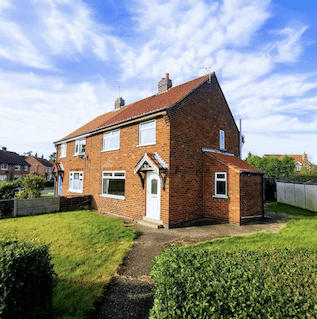If you think a gym or cinema room is only for a millionaire’s mansion, think again.
If you want to create a guest suite but don’t have a spare bedroom or the cash for an extension, don’t give up on your vision.
A garage conversion can add value to your home without eating into your garden.
It is generally less expensive than an extension, can be done quickly, and doesn’t usually require planning permission.
But it could devalue your home and put off potential buyers if your garage is your only off-road parking space.
On average, how much can I expect a garage conversion to add to the value of my home?
Is your garage full of random items sparking more headaches than joy?
If yes, then it may be worth copying professional tidying expert Marie Kondo by ditching the clutter and reaping the rewards.
By converting your garage, you could boost your home by an average of £350 per square foot, according to research by Admiral Loans.
For a garage measuring around 128 square feet, that’s £45,000.
5 things to consider before converting your garage
- Good design. The conversion should fit your needs. You could create a separate utility room or a bigger kitchen. The strong floor could hold gym equipment and the lack of windows would suit an at-home cinema. Or why not have a multi-purpose space with a sofa bed and office furniture?
- Profit vs spend. A garage conversion should add more value than it costs to build. It can cost as little as £7,500 – less than an extension or moving to a bigger home. But converting a garage to add an extra bedroom might push you up a council tax band.
- Professional help. You need to work with the right professionals and contractors and understand the process and what goes into it to achieve your goals. The space needs to be fully functional and well-fitted, with a high-quality finish, or it could devalue your house.
- Additional work. Consider what steps the conversion will involve to factor in all the costs. Will the roof need replacing, the foundations reinforced, or the ceiling height raised? What about providing insulation, ventilation, plumbing, and electricity? Think about how you will use the space.
- Building regulations approval. A garage conversion will likely require building regulations approval. You or your builder must stick to these when transforming an attached garage into a living space. They apply to thermal performance, acoustics, fire safety, and ventilation.
Is planning permission required?
Planning permission is not usually required, which could save you hundreds of pounds and a lot of hassle.
However, it is still best to check with your local authority.
You might need planning permission to replace the roof, and you will if you live in a conservation area or a listed building.
You might need to apply to remove any conditions attached to the house that require the garage to remain as parking.
Consider all the pros and cons
Forget blasting out music at 4am or your pet messing up next door’s flower beds – nothing creates neighbourly wars like fighting over parking.
If you don’t have off-road parking, consider that potential buyers might overlook your home if you turn your garage into accommodation.
If you have a drive, keep dreaming about that extended kitchen with a new breakfast bar or a state-of-the-art games room.
Consider all the costs, work, and design plan carefully – and you could be looking at a conversion that adds real value to your property.
For related articles and advice, you may also like:

